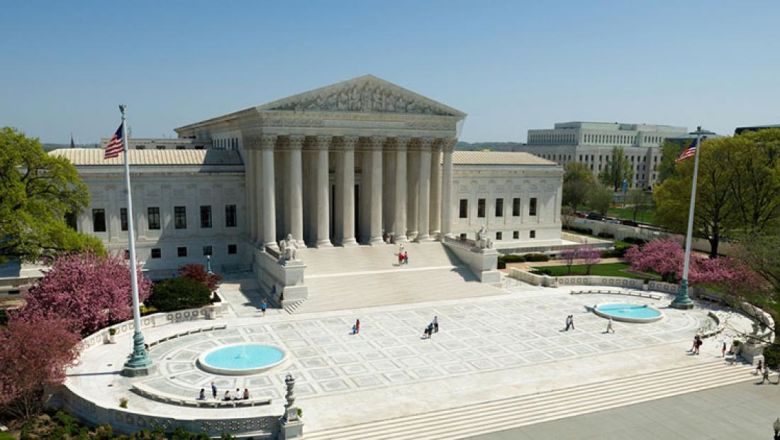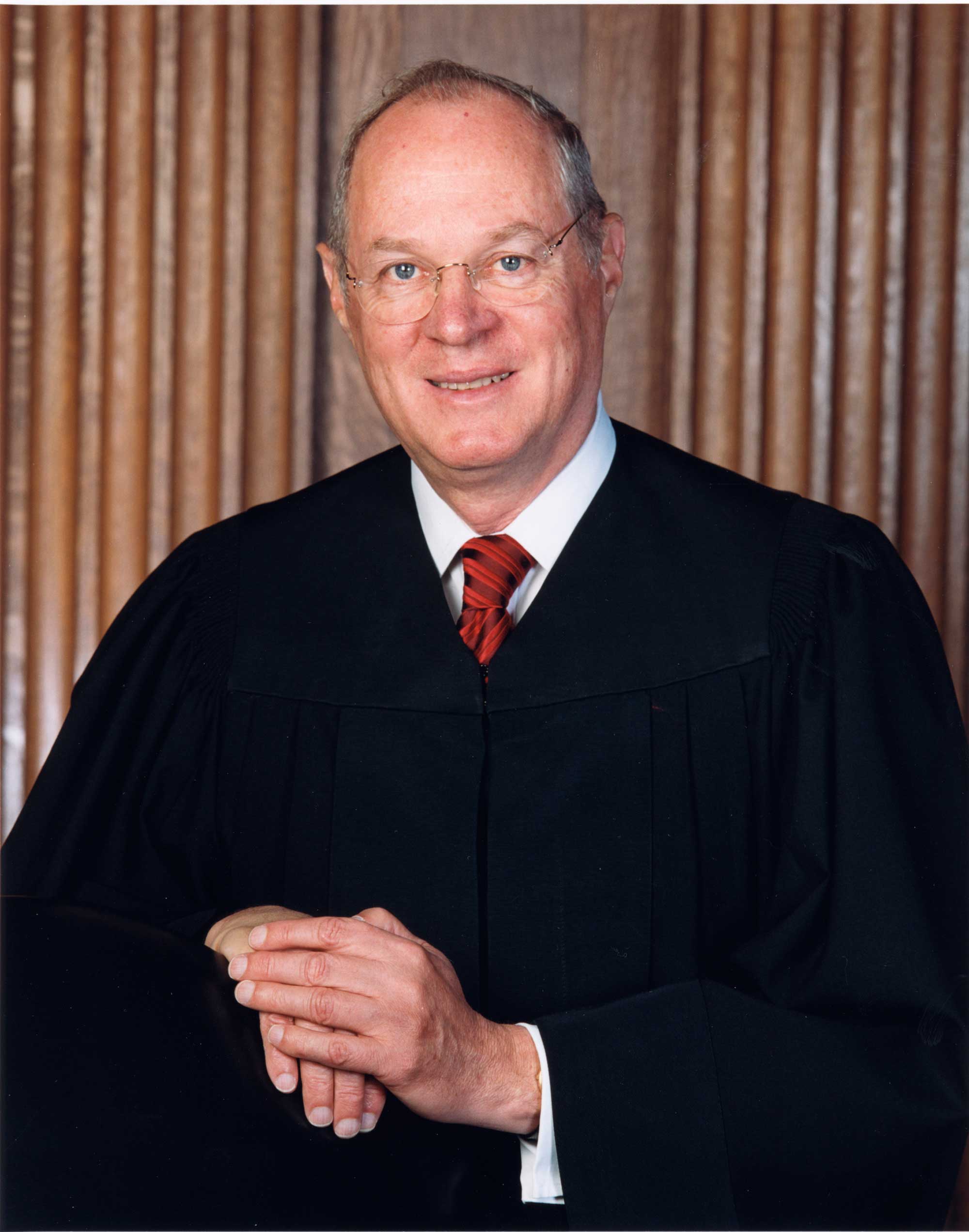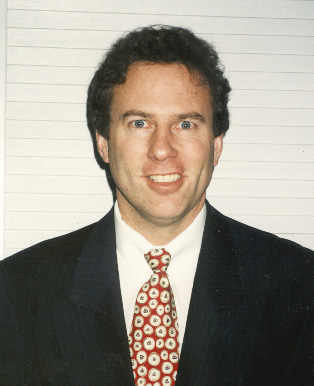Losing Our Balance — and Our Democracy — to the U.S. Supreme Court?
The smarter way to stay on top of the multichannel video marketplace. Sign up below.
You are now subscribed
Your newsletter sign-up was successful

Early in my career, I had the great fortune to do something amazing.
Like most young people, I did it enthusiastically, and without much knowledge of what I was actually doing, or what was really happening.
I spent literally scores and scores of hours working on important legal matters with Judge Anthony Kennedy.
And that truly captured my attention.
A Great Law Professor

Judge Kennedy of the Ninth Federal Circuit of Appeals was my Constitutional Law professor during my first year in law school.
Because of how good he was, I did a lot more than study. I had notes everywhere. I bought every supplemental resource. I read every case two or three times. I insisted that our study group spend more time on Judge Kennedy’s remarks than any other professor’s. He was my favorite law professor, for lots of reasons.
The smarter way to stay on top of the multichannel video marketplace. Sign up below.
On the last day of class, he spent a few moments to write a special personalized dedication to me, focused on his favorite justices, into the inside cover of my Constitutional Law text. I still treasure that.
With all that as pretext, one overriding message I got from him, and that just about anyone who worked to understand Constitutional Law should invoke, was the need for balance. That was “Balance” with a capital “B” (and probably best repeated a couple of times, to make sure you got it, because it was real important and real easy to lose). He preached that “Balance” often.
Years later, I took it a step further when I wrote to President Reagan in the 1980s, recommending Judge Kennedy as an associate justice to the U.S. Supreme Court. It was something I was very proud of then and for a long time afterward, including the two-sentence letter I got back from Fred Fielding, acknowledging my input. I still joke that my contribution to the process was why Judge Kennedy became a justice of the U.S. Supreme Court.
When, in the 1990s, I was sworn into the bar of the U.S. Supreme Court, Justice Kennedy was sitting at his SCOTUS bench in D.C.; he later wrote a kind note of congratulations, along with Justice Bryon White.
Flash Forward: 2018
Yet things have changed.
And so has that “Balance.”
Indeed, I truly wonder if “The Judge” believes it is still being adequately achieved?
Donny Deutsch, a Jew, a self-described conservative businessman, and a member of a minority group with a lot to lose, said it quite well when he decried a recent U.S Supreme Court decision that he said scared him quite a bit. He noted that the SCOTUS — led by Chief Justice Roberts and a retiring Justice Kennedy — had just given the U.S. president the right to do (I paraphrase) just about anything under the heading of the chief executive’s command over national security.
That also caught my attention.
As he often does, Deutsch did a remarkable job of clarifying the decision and its import. (Deutsch’s — and notable others’ — comments are certainly worth seeing online during an eight-minute YouTube video, especially at 1 minute 25 seconds.
Worrisome Times
As it relates to our democracy, and to our “Balance, with a capital B,” what is particularly worrisome right now are two things:
One is that the U.S. Supreme Court is losing that compass that aims unfailingly toward that “Balance.”
The second is that the U.S. media still struggles to remind its citizens, including all branches of our government, that re-establishing that life-saving Balance is a lot more important than allowing any U.S. president to ever do “just about anything,” by claiming it is done for the sake of “national security.”
Examples abound.
Prior presidents, from Republicans to Democrats, from Nixon to Clinton, have tried and tried to outduel the media, and the courts. Occasionally those presidents have won, but mostly they have lost, thanks in some real measure to that Balance applied by the judicial branch of the United States of America.
Thus, when Richard Nixon tried in the 1970s to squash a free exchange of information, the U.S. Supreme Court ruled 9-0 that he could not, and that he would have to produce “our” Watergate tapes. Similarly, when Bill Clinton some 25 years later tried to avoid a legal jeopardy in the Paula Jones and Monica Lewinsky debacles, again the U.S. Supreme Court found that Balance, in its decisions to hold him accountable to the people, through our media and our courts, during his presidency.
Our current president, Donald Trump, provides yet another example of trying to take undue advantage of his power, in part by firing and relentlessly attacking those who would investigate him, calling the media an “enemy of the people,” and suggesting to audiences that they be harmed (and that he be immune).
One must ask: Would Judge Kennedy have allowed Richard Nixon to hide his tapes based upon a Nixon claim of “national security?” Or would The Judge and Justice have permitted Bill Clinton to avoid regulation, simply because “being president takes a lot of time,” as the current candidate for SCOTUS associate justice has opined? Would he have found Balance in either of the positions maintained by those two presidents?
As for future presidents, they, too, must be constantly reminded of their infallibility, not vice versa. They, too, need to recognize, appreciate, and ideally, even practice that ever healthy Balance.
Broad Standards + Politics = Broad Imbalance
One reason why a “national security” standard is so problematic is that it is so incredibly broad. Judge Kennedy used to point out case after case that was either rightly or he thought not rightly decided based upon a standard that was too broad. “Too broad” meant “Not Balanced,” he taught us. It was hard to dispute then, and these days, it remains so.
With life and so many issues getting more and more complex, to have specific standards that address specific details and specific cases certainly means a lot more work, but more importantly (and making that work worthwhile), it means getting it right. It means “finding that Balance.”
When a current candidate for the SCOTUS states outright that a president cannot, under any circumstances, be told what to do or be prosecuted by outside authorities, that, too, creates more problems, because it creates a broad sweeping standard, which, again by Judge Kennedy’s definition, is Not Balanced. Then, to simply state that the sole solution is “impeachment,” creates a further problem with Balance. That is because impeachment, too, is a grossly inadequate solution, based upon a standard of unequal Congressional representative and electoral power, held by a smaller number of representatives, representing a smaller number of actual citizens.
Further, when current candidates for the SCOTUS are selected by our president, based largely, he has stated, upon a standard he selects of their willingness to overthrow just one established case precedent of 50 years, that two thirds of Americans strongly support, that, too, creates concerns for basic Balance.
Within a democracy, a relatively small minority telling a much larger majority what to do is not Balance.
Our country’s and the U.S. Supreme Court’s decisions show us we get closer to both keeping and achieving cherished individual freedoms — such as the 1st, 2nd, and almost all the other amendments — by achieving more Balance, not less.
Balanced Courts = Broad Democracy
Ultimately, in the 242 years of our democracy, alleged crimes are timely presented to juries. This clearly imperfect solution remains the most Balanced and just we have. Conversely, more today, crimes presented for judgment to Congressmen, Congresswomen, and Senators, or even to members of the U.S. Supreme Court, become less and less Balanced, again because politics are so deeply involved.
An additional lack of Balance arises from political interests trumping the truth, and our media’s coverage of that truth, taking us yet further from our democracy.
In short, in order for the system of democracy to work, the referee on the field has to exhibit fairness in the form of Balance.
This is the time we need the U.S. Supreme Court to return us to our Better Balance.
Indeed, this is the time we need more than ever a new U.S. Supreme Court associate justice who will help to give us back that Democracy (this one, similarly, with a capital D).
Summing up, we have a long ways to go — and, we hope, we will have to convince a limited number of courageous jurors, legislators, and executives, as well as voting citizens — before we reach that all-critical Balance that Judge Kennedy taught us all in law school.
It’s the same Balance modeled to Justice Gorsuch and Judge Kavanaugh, as Justice Kennedy’s clerks, and to thousands of others like us who were fortunate enough to have studied under, worked for, and learned from both the Judge and Justice known as Anthony Kennedy.
Jimmy Schaeffler is chair and CSO of The Carmel Group, a streaming/broadband, broadcast, and pay TV/video consultancy based in Carmel-by-the-Sea, Calif.
Jimmy Schaeffler is chairman and CSO of The Carmel Group, a nearly three-decades-old west coast-based telecom and entertainment consultancy founded in 1995.

